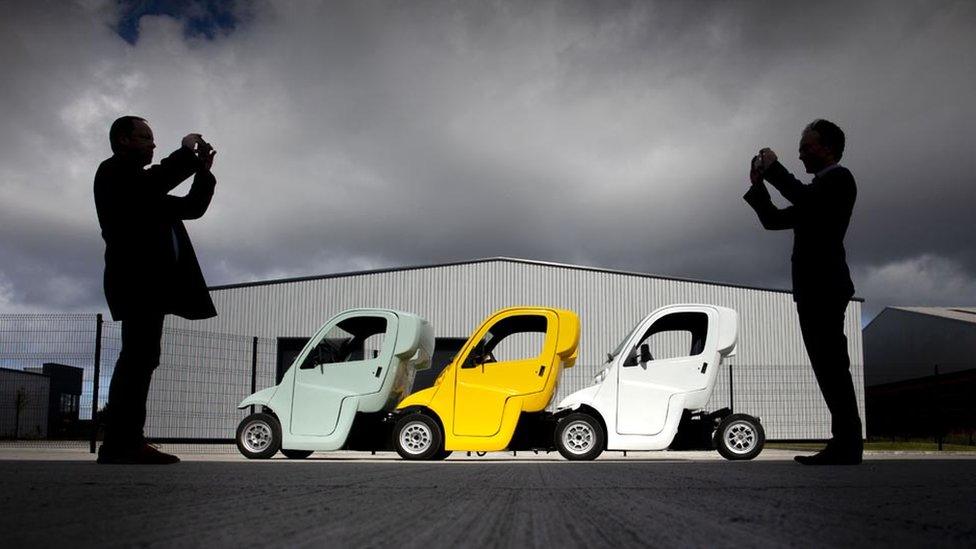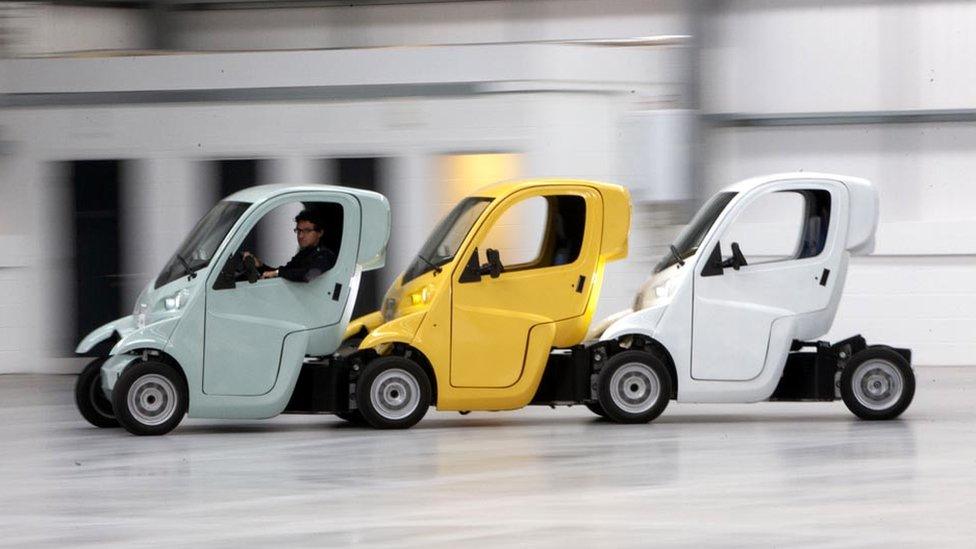Stackable 'cars of the future' unveiled in Scotland
- Published

Up to eight cars can form a "road train"
A public transport system using stackable cars similar in design to shopping trolleys has been unveiled.
The Esprit, external (Easily Distributed Personal Rapid Transit) project has involved the development of lightweight electric vehicles that can be stacked together to save space.
Up to eight can also be driven together as a "road train".
The University of Aberdeen and transport group First are among the organisations across Europe involved.
It is part of the European Commission's Green Vehicles Sub-Programme of Horizon 2020.
The vehicles will be designed for short journeys in busy areas.
'Benefit of society'
Transport Secretary Michael Matheson, speaking at a demonstration event in Glasgow. said: "It's exciting to see innovation in the area of sustainable transport from Esprit.
"Alongside walking, cycling and public transport, developments in car, lift and bike sharing can only further sustainable travel options by providing viable alternatives to single occupancy car journeys across Scotland."

Esprit's Dr Richard Mounce, from the University of Aberdeen, said: "Transportation to and from city-centres and within suburban areas is increasingly unsatisfactory in terms of congestion, environmental and societal aspects.
"Solutions to reduce this congestion and pollution must be explored seriously for the benefit of society now and in the future.
"With car-sharing schemes expanding throughout Europe, Esprit will create a system that provides greater energy efficiency, whilst also reducing congestion as well as noise and air pollution."
Users of the Esprit vehicles would need a valid driving licence.